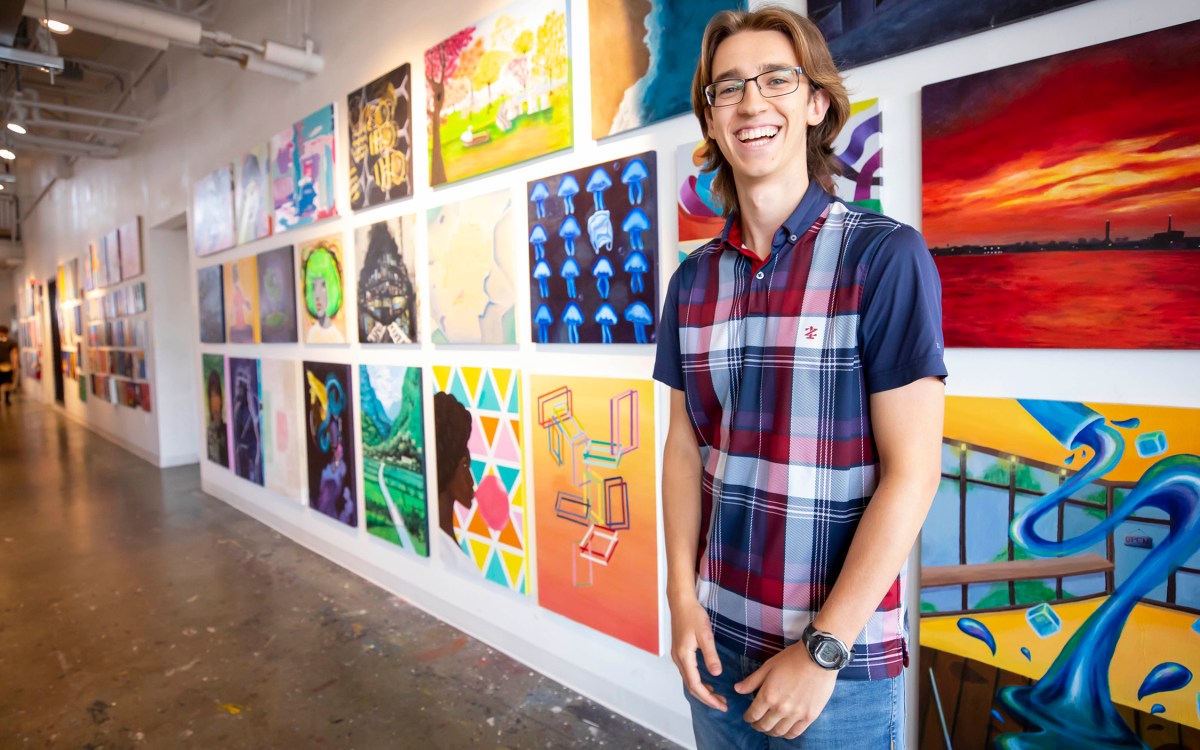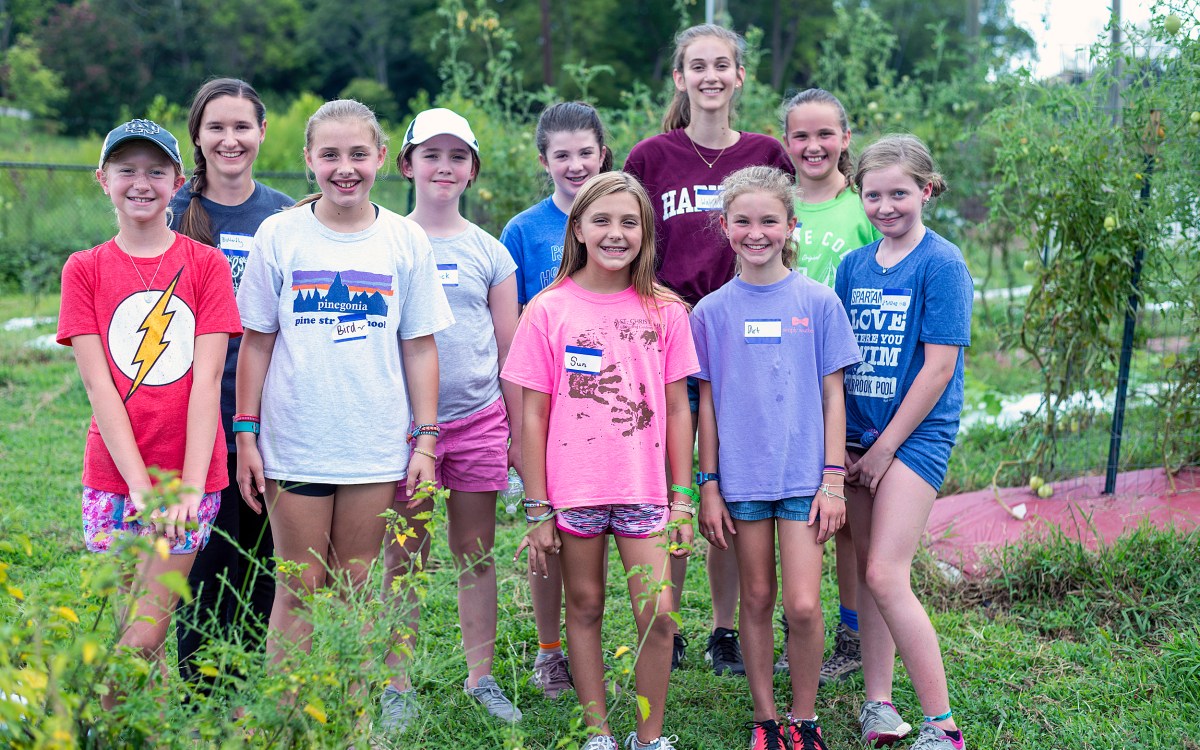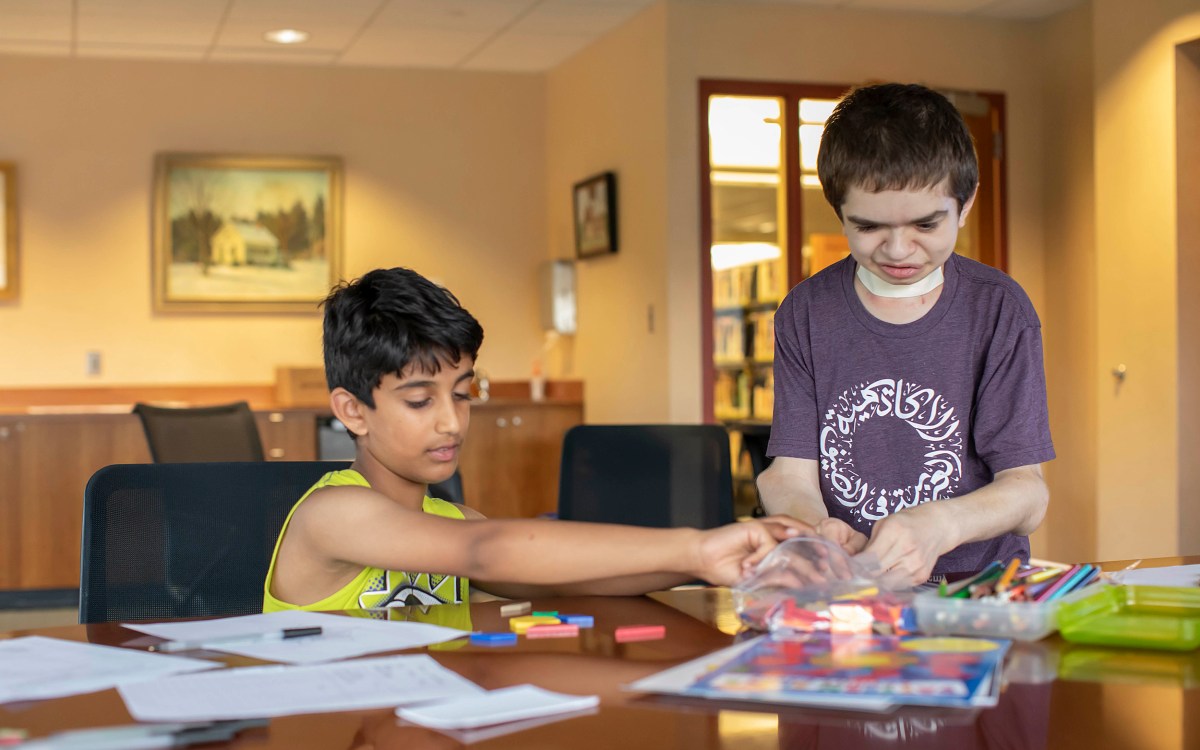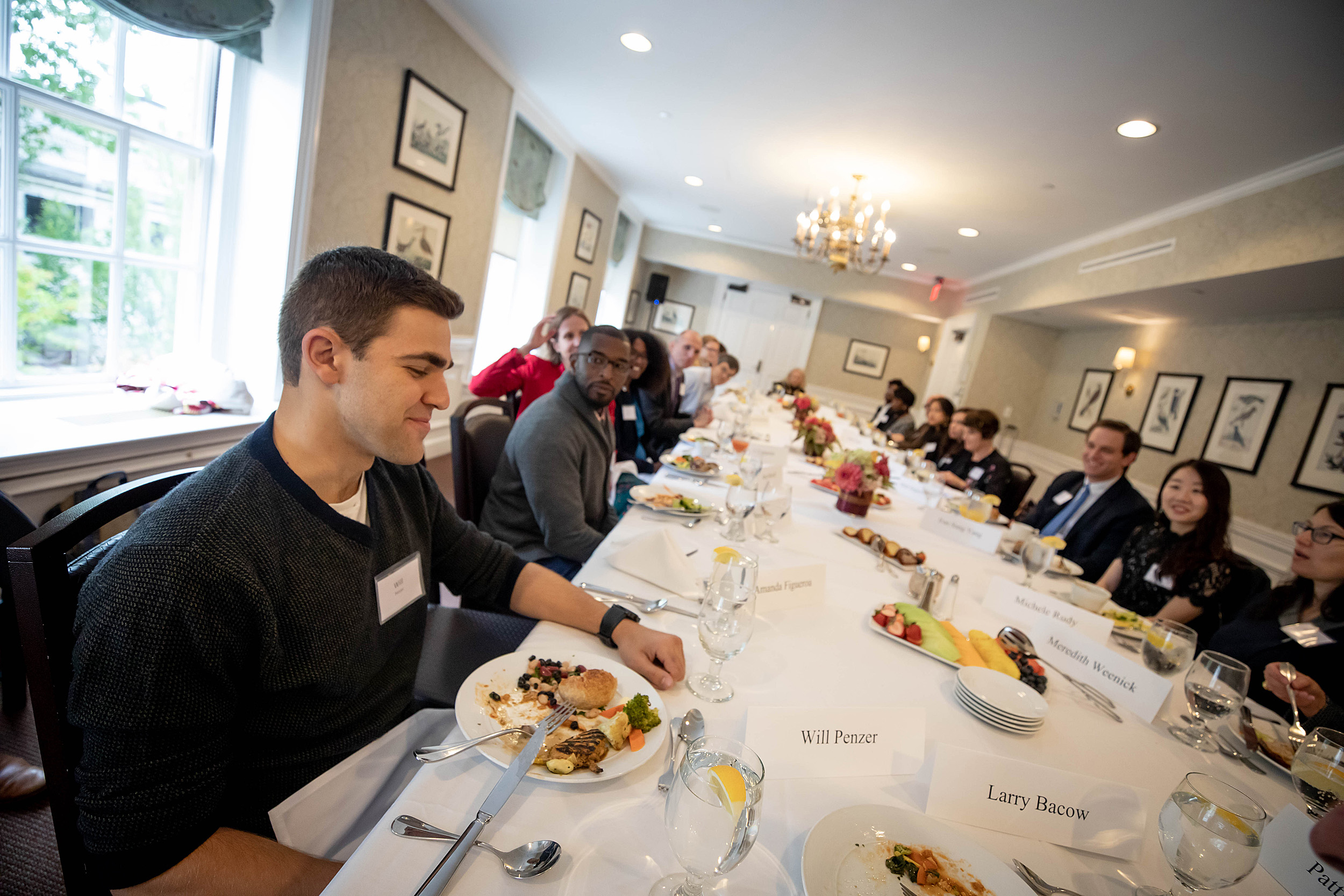
Will Penzer (left) introduces himself at the Presidential Public Service Fellowship lunch held at the Faculty Club.
Photos by Rose Lincoln/Harvard Staff Photographer
How I spent my summer serving others
Presidential Public Service fellows talk about their recent work
At his inauguration a year ago, Harvard President Larry Bacow reaffirmed the University’s commitment to public service and challenged every member of the community to be an active and engaged citizen. Over the past summer, 15 students did just that by serving communities around the country as part of the Presidential Public Service Fellowship (PPSF).
Established in 2011, the program supports students who spend their summers helping others by working with education and governmental organizations; local, national, and worldwide social services and human rights groups; and nonprofits. It is the only program on campus that supports both undergraduate and graduate students, and its fellows come from across several of Harvard’s Schools and programs.
At a luncheon on Oct. 4 with this year’s fellows, Bacow referenced the words over Dexter Gate: “Enter to grow in wisdom, depart to serve better thy country and thy kind.”
“As people who are blessed to have the opportunity to live here, to work here, to study here, to do research here, I think that imposes on us, just as it says on Dexter Gate, to leave to serve. We have this commission of each generation helping the next,” Bacow said.
This year’s fellows worked in nine different states and Washington, D.C., in settings that ranged from offices on Capitol Hill to disaster areas and refugee camps.
Elijah DeVaughn Jr. ’21 spent his summer at the American Civil Liberties Union’s National Prison Project, which works to ensure that prisons across the country comply with the constitutional and human rights of those incarcerated. DeVaughn’s work included proofreading amicus briefs that would eventually go to the U.S. Supreme Court and letters of Substantial Noncompliance that would be sent to other jurisdictions. He also watched “use of force” videos and handled prisoner correspondence.
“Doing this work day in and day out — it’s heavy and it’s hard,” DeVaughn said. “But when I lay my head on my pillow at night, I know that I’m actively engaging in the crusade to create the world as it ought to be, and that’s where I derive my content, that’s where I derive my meaning, that’s what made me happy about this summer.”
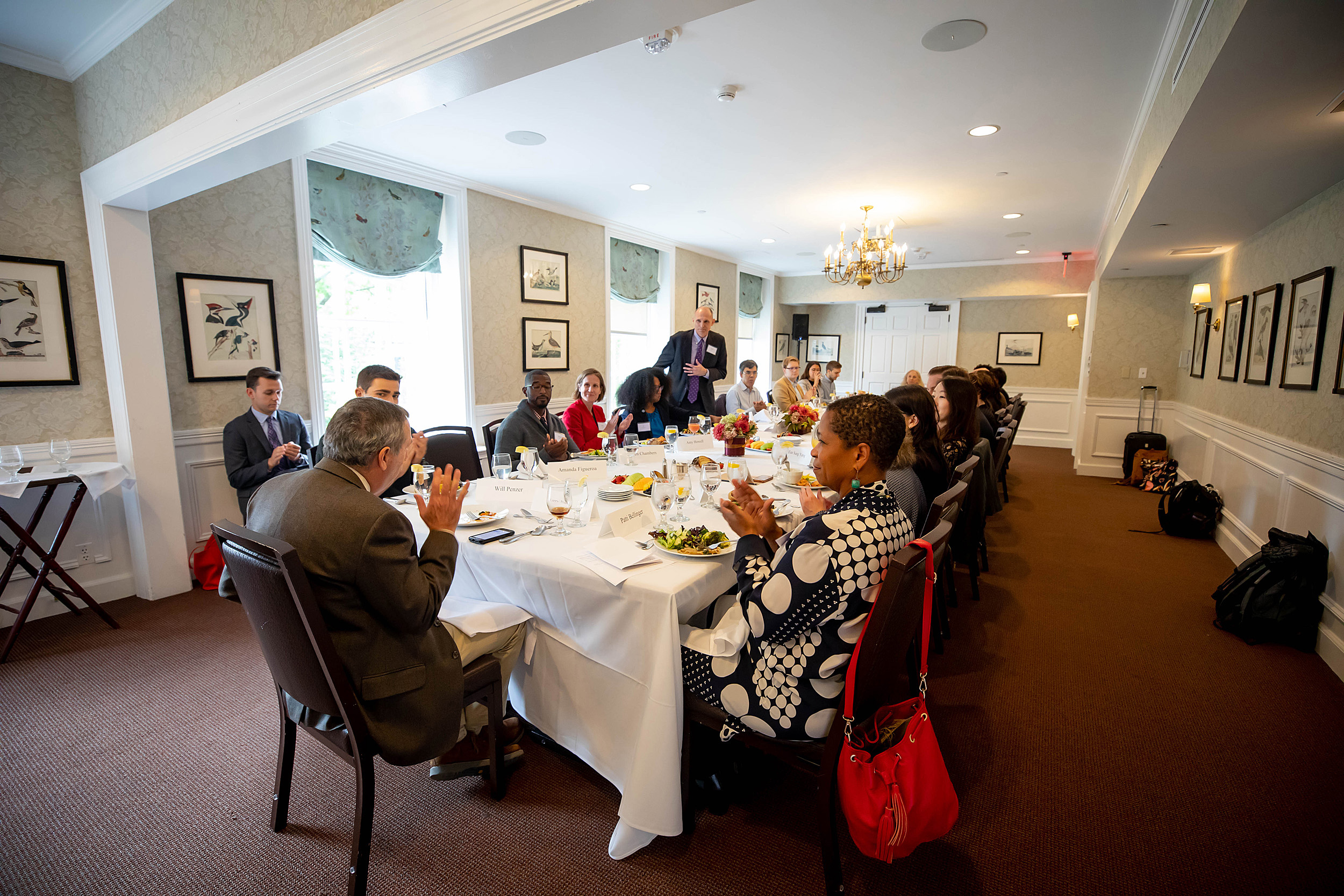
Anna Del Castillo, a bilingual master of divinity candidate at Harvard Divinity School, worked with the Faith Matters Network in Tennessee. After a mentor told her about the organization’s Movement Chaplaincy Project, she recognized that it aligned well with her interest in the intersection between faith, spirituality, social justice, and community organizing.
Del Castillo reviewed the program’s curriculum, a 12-week online course focused on teaching skills and content to people who provide spiritual and emotional support to organizations. She also traveled to Tijuana, Mexico, where she volunteered in refugee facilities on the southern U.S. border, providing emotional support to asylum seekers and hearing their stories.
ROTC cadet Will Penzer ’21 also spent his summer helping people in adverse circumstances. As an executive intern for Team Rubicon, a nonprofit that deploys emergency response teams of veterans to disaster areas, he learned about coordinating, organizing, and funding disaster relief efforts around the world.
“I looked at Team Rubicon specifically because I knew that the service was important,” Penzer said. “They were able to give me a really good sense of what lessons they took from the military that work in their nonprofit world, and what things have they realized through work in the nonprofit space that don’t work so well.”
D Dangaran, a student at Harvard Law School, worked at both the ACLU LGBT & HIV Project and the Sylvia Rivera Law Project, both in New York.
“Most people split between a law firm and public interest — splitting between two public interests is risky,” Dangaran said, as many of the latter do not compensate interns. “But this fellowship allowed me to spend more weeks in New York that otherwise I wouldn’t have been able to.”
Speaking to the positive impact of each fellow’s work, Bacow said, “It’s why I think service is important,” He added, “It’s why I think each of us needs to find ways that we can make the world a better place, and it’s why our office is so privileged and honored to be able to support this program.”



